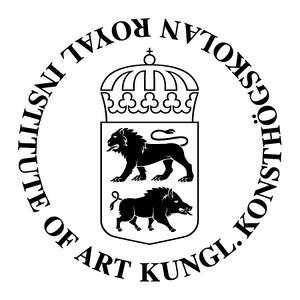Application deadline: April 20, 2022
Flaggmansvägen 1
SE-111 49 Stockholm
Sweden
T +46 8 614 40 00
info@kkh.se
Decolonizing Architecture Advanced Course at the Royal Institute of Art in Stockholm is a year long research-based course. The course uses the term decolonization as a critical position and conceptual frame for an architectural and artistic research practice engaged in social and political struggles. In the Decolonizing Architecture Advanced Course, we engage in a collective endeavor in experimenting with decolonial approaches. We do this work in dialogue with guests, sites, concepts, texts, and, most importantly, with each other.
The fundamental pedagogical approach of the course is based on the articulation of sites, concepts, and people. Each participant is asked to choose a particular site, understood as a site of action and a site of knowledge. Concepts emerging from the research site provide a grounded theoretical approach to the practice. Every year, a new theme and collective site are proposed as a collective project. The articulation of individual and collective research projects constitutes the outcome of the year-long course.
Ideal candidates should be interested in the political and social dimensions of Architecture, and in conceptual speculations that are grounded in and emerge from artistic and architectural practice. Participants should be open to experimental forms of collective production which challenge individual authorship, and to an open-ended process oriented towards material and immaterial outcomes. Decolonizing Architecture Advanced Course offers a unique opportunity to join a collective international community of practitioners and to receive the necessary material and intellectual support for developing a self-driven artistic and architectural practice.
The course is led by Alessandro Petti, professor in Architecture and Social Justice, in collaboration with Marie-Louise Richards, lecturer in Architecture, and enriched by the contribution of advisors and invited guests.
Theme 2022–23: Internal colonization and the countryside
In a series of texts written at the beginning of the 1920s, Antonio Gramsci depicts the so-called Italian ‘southern question’ as a form of internal colonization, establishing a fundamental link between imperial ambitions and internal forms of colonization. Legitimized by the rhetoric of modernization, ‘peripheral territories’ within Europe have also been objects of internal colonization via extraction and expropriation (among them Sápmi and Ireland), forcing the local population to emigrate. The abandonment of the countryside was the natural consequence of decades of exploitation, subjugation, and migration. How do those stories of internal colonization force us to rethink contemporary migration and the countryside today?
Students will have the opportunity to travel to Borgo Rizza, Sicily, one of the new towns built by the Entity of Colonization of Sicily in 1940. Since last year, the course has assisted the local municipality to transform the abandoned town into a new civic space for local organizations and international universities. Based on an already established partnership with the local municipality of Carlentini, students will collectively contrbute to a series of interventions and discursive exhibitions with the aim of reinhabiting Borgo Rizza and connecting the site with other ‘case studies’ around the world.
Course structure
The course is divided into two modules over one academic year. The Fall and Spring semesters are each divided into four mandatory blocks consisting of an intensive program of seminars, lectures, studios, mentorships, collective readings, site visits and walks. Between blocks, participants are expected to develop their research independently. During the spring semester, more emphasis is put on the production of a collective intervention and/or a discursive exhibition. The course culminates with this discursive exhibition at the end of the year, where the artistic and architectural research developed is used as a support structure for public discussions, seminars, lectures, and performances.
The course benefits from being located at a leading art institution of higher learning with an experimental artistic research environment. The Royal Institute of Art in Stockholm has a long artistic tradition dating back to the beginning of the 18th century, offering both undergraduate and postgraduate studies in Fine Arts and postgraduate studies in Architecture.
This year the Decolonizing Architecture Advanced Course is organized in collaboration with the MA program in Critical Urbanisms at the University of Basel (Switzerland) and will take place in Stockholm, online, and in the former building of the ‘Entity of Colonization of Sicilian Latifundia’ in Borgo Rizza, Municipality of Carlentini in Sicily.
Decolonizing Architecture Advanced Studies (daas) is a series of courses, public seminars, field studies, publications, and discursive exhibitions that together form a platform for education and research at the Royal Institute of Art in Stockholm.


